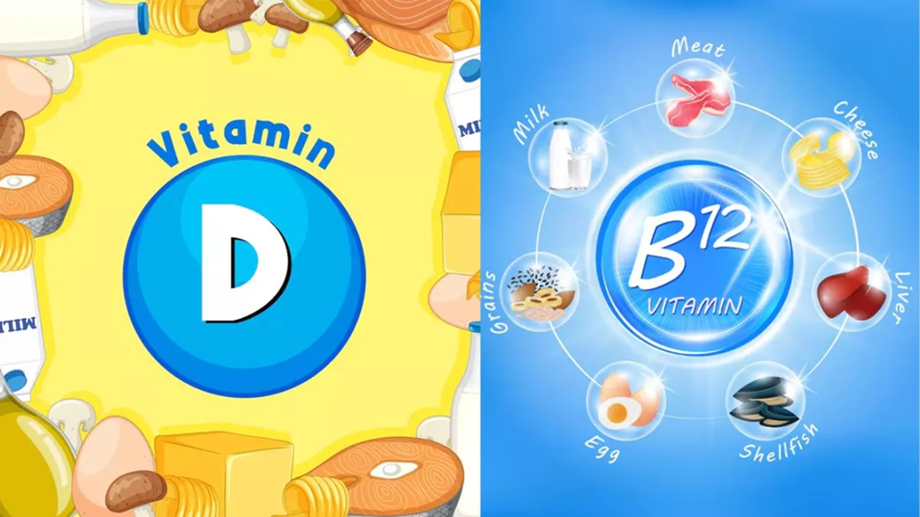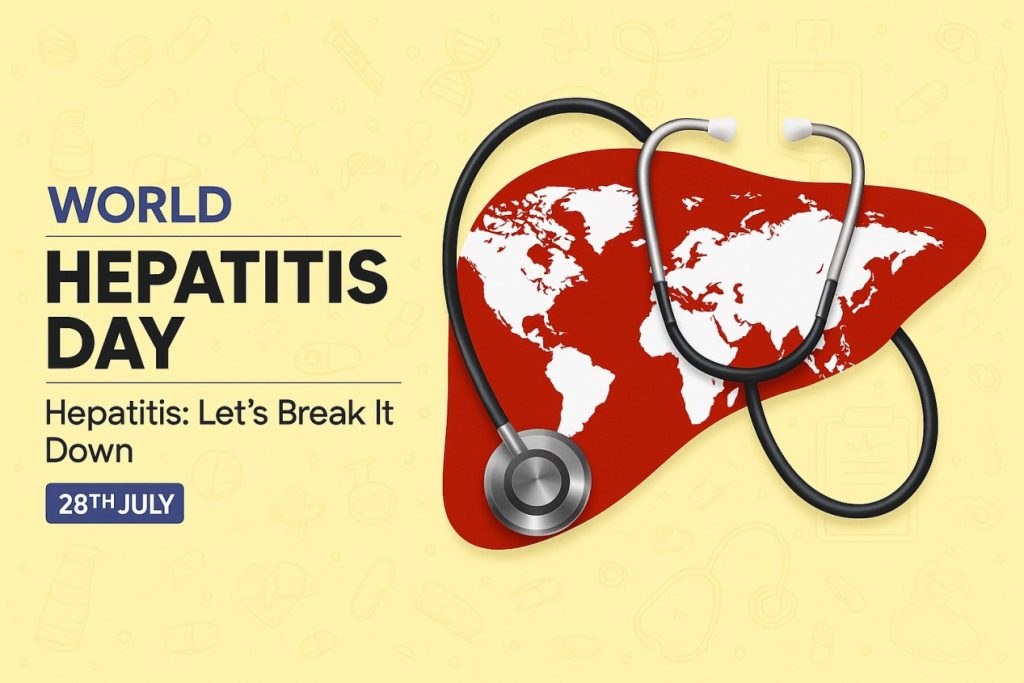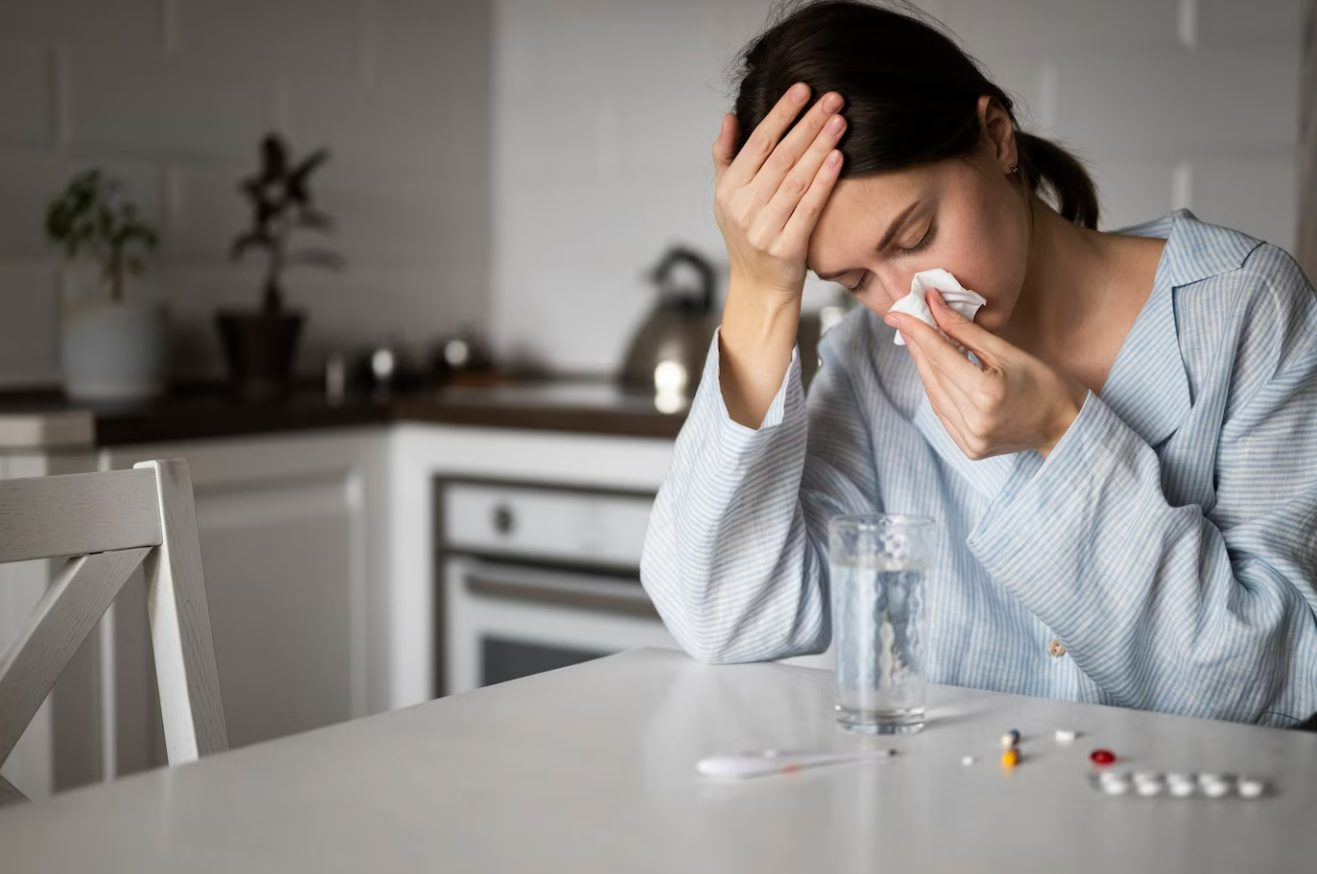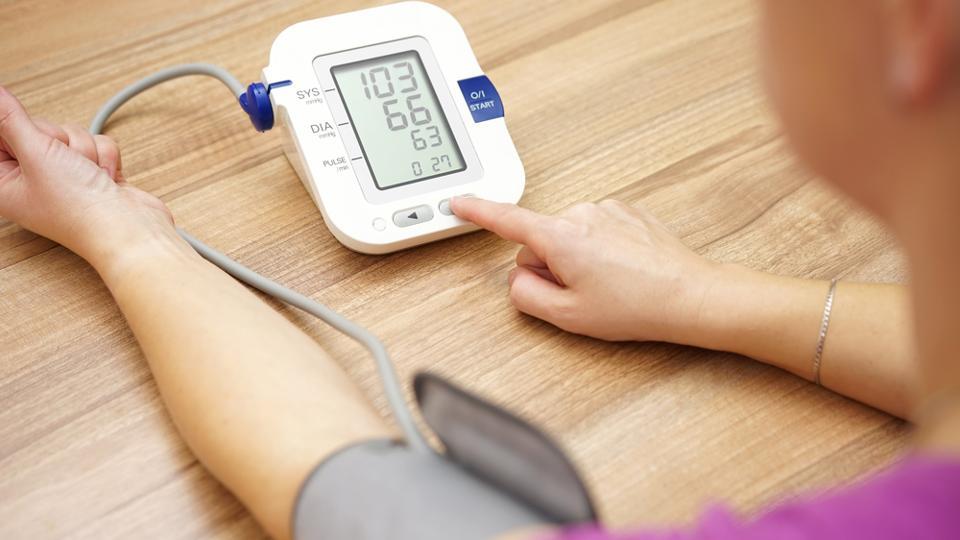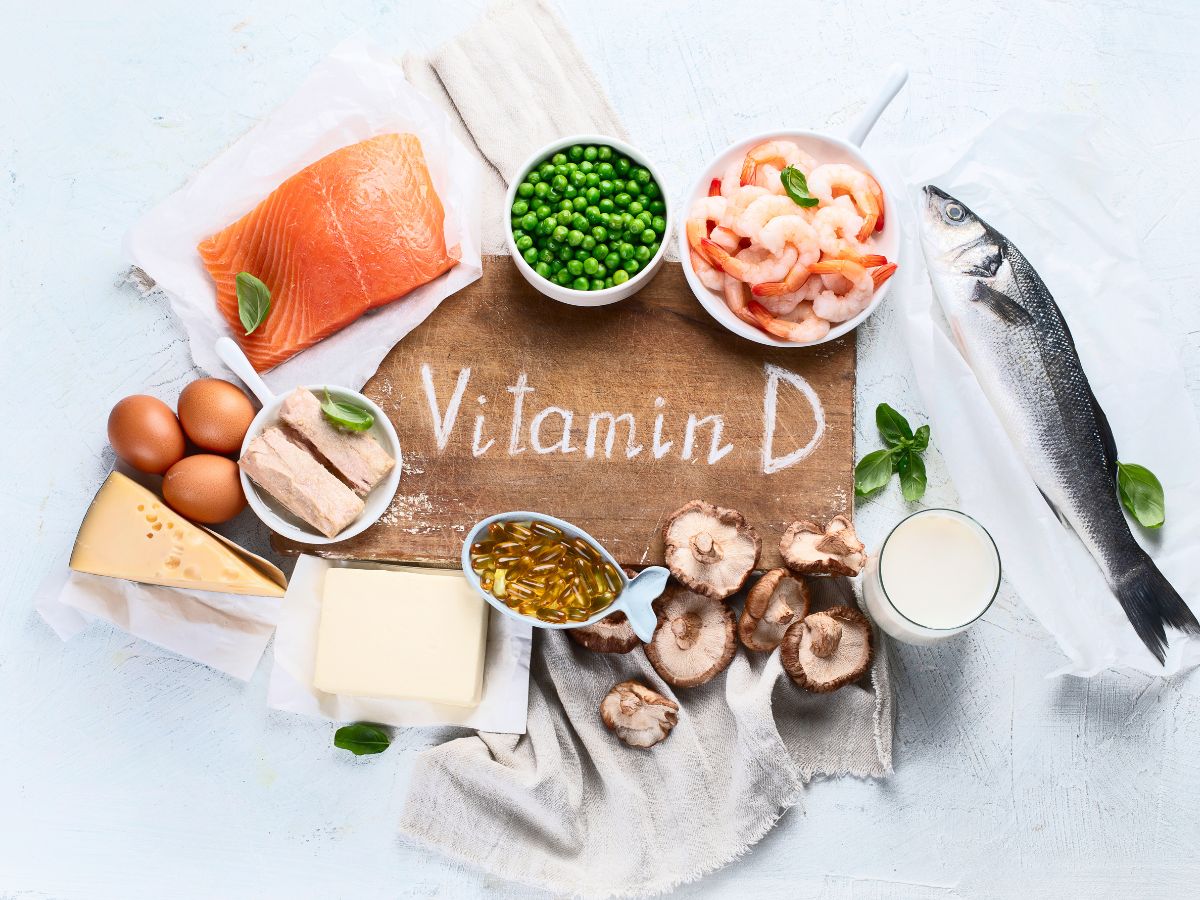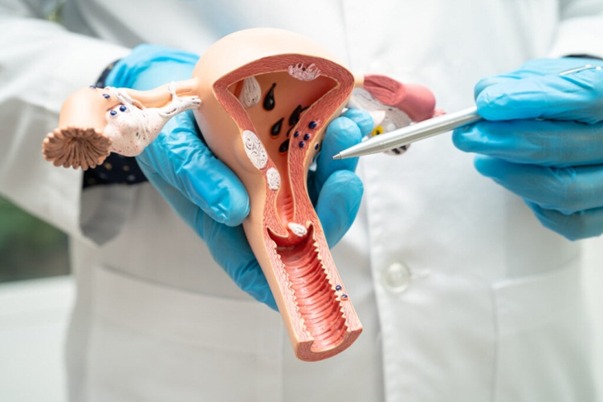Teen Menstrual Cycle – Understanding the First Period and Early Hormonal Changes
The journey of menstruation begins in the teenage years. For most girls, the first period, also called menarche, arrives between the ages of 10 and 15. This milestone marks the beginning of reproductive life, but it is much more than just a monthly event. The menstrual cycle is deeply connected to overall health, and the changes that occur in teenage years set the foundation for hormonal balance, fertility, and well-being later in life.
In this blog, we will explore the teenage menstrual cycle in depth — from the hormonal changes that trigger menarche to the common problems teens face, factors that can disturb the cycle, and healthy habits that can support a smooth transition into womanhood.
The Science Behind Menarche
Puberty is the body’s natural preparation for adulthood. During this stage, the brain starts sending signals to the ovaries through the pituitary gland. Two important hormones, FSH (follicle-stimulating hormone) and LH (luteinizing hormone), begin to rise. These hormones stimulate the ovaries to produce estrogen and progesterone, the two key reproductive hormones.
As estrogen levels increase, the lining of the uterus (endometrium) starts building up every month. When ovulation does not lead to pregnancy, this lining is shed in the form of menstrual bleeding. The first period is, therefore, a sign that the body’s reproductive system has begun functioning.
However, in the first two to three years after menarche, periods are rarely “perfect.” Cycles can be long, short, or even skipped altogether. This is because the body is still adjusting to regular ovulation, and hormone levels are not yet stable.
What is a Normal Teenage Cycle?
For teenagers, the menstrual cycle often looks very different from the textbook “28-day cycle” we hear about. In reality:
Periods may come every 21 to 45 days in the first few years.
Flow can range from light spotting to heavy bleeding.
Periods may last 2 to 7 days, sometimes longer in the early years.
Irregular cycles are common until the hormones find their natural rhythm.
Parents, teachers, and even teens themselves should understand that this irregularity is normal. Unless periods are excessively painful, last more than 10 days, or involve very heavy bleeding, there is usually no cause for alarm.
Common Period Problems in Teens
While irregular cycles are expected, some issues can make menstruation uncomfortable or stressful for teens:
1. Painful Periods (Dysmenorrhea):
Cramps are caused by uterine contractions during bleeding. In teenagers, cramps can sometimes be very intense, leading to school absences and fatigue.
2. Heavy Bleeding (Menorrhagia):
Some teens may experience heavy flow that requires changing pads or tampons every 1–2 hours. This can cause anemia and needs medical evaluation.
3. Missed Periods (Amenorrhea):
Teens may go months without periods, especially if they are underweight, overweight, or very stressed. Athletes and dancers often experience this due to low body fat and excessive exercise.
4. Premenstrual Syndrome (PMS):
Mood swings, bloating, breast tenderness, and irritability before periods can be common even in teens.
5. Acne and Skin Changes:
Hormonal fluctuations can trigger excess oil production, leading to acne breakouts that often worsen around periods.
Factors That Can Disturb the Teenage Cycle
The menstrual cycle is not just about reproductive health — it reflects the overall health of the body. Many lifestyle and medical factors can disrupt periods in teenagers:
Stress: Emotional or academic stress can delay ovulation and cause irregular cycles.
Nutrition: Poor diet, eating disorders, or deficiencies in iron and vitamins can affect periods.
Weight: Both obesity and being underweight disrupt hormonal balance.
Exercise: Excessive workouts or sports training can suppress menstruation.
Medical Conditions: Polycystic ovary syndrome (PCOS), thyroid disorders, and clotting disorders sometimes show up in adolescence.
By identifying these factors early, teens can be guided towards healthier choices that stabilize their cycles.
The Role of Contraceptive Pills in Teens
Though more common in adults, contraceptive pills are sometimes prescribed to teens — not just for birth control but also for managing painful or irregular cycles, acne, or heavy bleeding.
Oral contraceptive pills contain synthetic versions of estrogen and progesterone. They regulate periods by preventing natural ovulation and controlling hormonal fluctuations. For many teens, this brings relief from cramps, reduces acne, and makes cycles more predictable.
However, it’s important to remember that these pills artificially control the cycle and may cause side effects like mood swings, nausea, or spotting. They should only be used under medical guidance, especially in young girls whose natural cycles are still stabilizing.
Healthy Habits for Teens to Support Menstrual Health
The teenage years are the best time to build a healthy foundation for long-term menstrual and reproductive health. Here are some supportive practices:
Balanced Nutrition: Eating iron-rich foods (like spinach, lentils, and lean meats) prevents anemia. Omega-3 fats, fruits, and whole grains help regulate hormones.
Regular Exercise: Moderate activity like walking, yoga, or swimming improves blood flow and reduces cramps.
Stress Management: Meditation, breathing exercises, and adequate sleep support hormonal balance.
Hydration: Drinking enough water reduces bloating and fatigue.
Tracking Periods: Using a diary or app helps teens notice patterns, making it easier to identify when something is unusual.
Open Conversations: Encouraging open discussion about periods reduces stigma and helps teens seek medical help without hesitation.
When Should a Teen See a Doctor?
While irregular cycles are normal in the first few years, medical advice is necessary if:
Periods are very heavy (soaking through pads every 1–2 hours).
Cycles are absent for more than 3 months after menarche.
Severe pain interferes with daily life.
Acne, excessive hair growth, or sudden weight changes occur.
These signs may point to conditions like PCOS, thyroid imbalance, or bleeding disorders, which need medical evaluation.
Emotional and Social Aspects of Teen Menstruation
Menstruation is not just a biological process — it has a huge emotional and social impact, especially for teens. Many young girls feel embarrassed, anxious, or even fearful about periods, especially if they lack proper education. Cultural taboos and myths often make the situation worse. Some girls are discouraged from participating in sports, swimming, or even attending school during their periods.
Breaking these taboos through education and open communication is essential. When teens are taught that menstruation is a normal and healthy process, they feel more confident and less anxious about it. Schools, families, and communities play a crucial role in building this positive mindset.
Final Thoughts
The teenage menstrual cycle is a time of learning, adaptation, and growth. From the first period to the gradual stabilization of cycles, the journey can sometimes feel overwhelming for both teens and their families. However, with the right knowledge, lifestyle support, and medical care when needed, teenagers can manage this transition smoothly.
A healthy menstrual cycle in the teen years lays the foundation for reproductive health in adulthood and even beyond. By focusing on nutrition, stress management, and open conversations, we can ensure that this phase is not marked by confusion or stigma, but by empowerment and understanding.
If you or your teenager are experiencing irregular cycles, painful periods, or heavy bleeding, it’s always best to consult a gynecologist for proper guidance. At Intros Care Pharmacy & Polyclinic, TDI City, Sector 111, Mohali, you can not only access essential medications but also book an appointment with our experienced gynecologists for expert consultation. Our team is here to support teenage girls and their families with the right care, treatment, and guidance.
📍 Visit us at Intros Care, SCO-1001, Connaught Place, near Bank of Baroda, TDI City, Sector 111, SAS Nagar, Punjab.
📲 For appointments or queries, WhatsApp/call: 07658055455
Vitamin D3 & Vitamin B12 – Why They Are Essential for Indians
Introduction
In today’s fast-paced lifestyle, nutritional deficiencies are becoming increasingly common in India. Among the most concerning are Vitamin D3 deficiency and Vitamin B12 deficiency. Both play a vital role in overall health, yet millions of Indians remain unaware of their importance. According to recent studies, over 70% of Indians are deficient in Vitamin D3, while nearly 47% suffer from low Vitamin B12 levels.
This blog will help you understand why Vitamin D3 and B12 are essential, their benefits, deficiency symptoms, natural food sources, supplements, and the best ways for Indians to maintain healthy levels.
Why Vitamin D3 is Important for Indians
What is Vitamin D3?
Vitamin D3, also known as cholecalciferol, is a fat-soluble vitamin that the body produces when the skin is exposed to sunlight. It is often called the “sunshine vitamin” because of this unique ability.
Health Benefits of Vitamin D3
Bone & Joint Health – Helps in calcium absorption, strengthens bones, and prevents osteoporosis.
Immunity Booster – Plays a major role in fighting infections, including respiratory illnesses.
Mood & Mental Health – Regulates serotonin levels and reduces risks of depression.
Heart Health – Supports cardiovascular function and lowers risk of hypertension.
Why Indians are Deficient in Vitamin D3
Despite living in a sunny country, a large percentage of Indians are Vitamin D3 deficient due to:
Indoor lifestyle and less exposure to sunlight.
Use of sunscreen blocking UVB rays.
Dark skin tone, which reduces vitamin D synthesis.
Vegetarian diets with limited Vitamin D sources.
Why Vitamin B12 is Important for Indians
What is Vitamin B12?
Vitamin B12, also known as cobalamin, is a water-soluble vitamin essential for the production of red blood cells, nerve health, and DNA synthesis.
Health Benefits of Vitamin B12
Prevents Anemia – Increases red blood cell production and prevents fatigue.
Supports Brain Function – Improves memory, focus, and mood.
Boosts Energy Levels – Converts food into usable energy.
Healthy Pregnancy – Essential for fetal brain and nervous system development.
Why Indians are Deficient in Vitamin B12
Vegetarian diet – Vitamin B12 is mainly found in animal products.
Low awareness – Lack of knowledge about supplementation.
Poor absorption – Conditions like gastritis or excessive use of antacids can reduce absorption.
Vitamin D3 & B12 Deficiency Symptoms
Common Symptoms of Vitamin D3 Deficiency
Weak bones, frequent fractures, or osteoporosis.
Fatigue and low immunity.
Muscle pain and weakness.
Mood swings and depression.
Common Symptoms of Vitamin B12 Deficiency
Constant tiredness and weakness.
Numbness, tingling in hands/feet (nerve damage).
Memory issues and poor concentration.
Pale skin and shortness of breath.
Best Food Sources for Vitamin D3 & B12
Vitamin D3 Rich Foods
Fatty fish (salmon, mackerel, sardines).
Egg yolks.
Fortified milk and cereals.
Mushrooms exposed to sunlight.
Vitamin B12 Rich Foods
Dairy products (milk, paneer, curd, cheese).
Eggs.
Fish and chicken.
Fortified plant-based milks (soy, almond, oat).
(Tip: Vegans can rely on fortified foods or Vitamin B12 supplements.)
Vitamin D3 & B12 Supplements for Indians
Since food sources alone may not be enough, many Indians rely on supplements.
Vitamin D3 supplements – Available in soft gels, capsules, chewable tablets, and drops (commonly in 60,000 IU weekly doses).
Vitamin B12 supplements – Available in tablets, injections, and sublingual forms.
Combination supplements – Some multivitamins combine Vitamin D3 and B12 along with other essential nutrients.
⚠️ Always consult a doctor or pharmacist before starting supplements.
Sunlight & Lifestyle Tips for Indians
Get 20–30 minutes of morning sunlight at least 4 times a week.
Include fortified foods in your diet.
Exercise outdoors for better exposure.
Avoid excessive processed foods that can worsen nutrient absorption.
FAQs on Vitamin D3 & B12 for Indians
1. How much Vitamin D3 do Indians need daily?
The recommended daily allowance is 600–800 IU, but doctors often prescribe higher doses (e.g., 60,000 IU weekly) in deficiency cases.
2. How much Vitamin B12 should I take daily?
Adults need about 2.4 mcg daily, but deficiency may require higher doses.
3. Can vegetarians get enough Vitamin B12 naturally?
No, since B12 is mostly found in animal foods. Vegetarians must consume fortified foods or supplements.
4. Can Vitamin D3 and B12 be taken together?
Yes, they are often prescribed together as they complement each other in supporting energy, immunity, and bone health.
5. Which age group in India is most at risk?
Office workers with limited sunlight exposure.
Elderly people.
Pregnant women.
Vegetarians & vegans.
Conclusion
Deficiency of Vitamin D3 and Vitamin B12 is one of the most ignored health issues in India, yet it directly impacts energy, immunity, mental health, and overall well-being. With a balanced approach of sunlight exposure, nutrient-rich foods, and supplements when required, Indians can easily prevent these deficiencies and lead healthier lives.
If you’re experiencing symptoms like constant fatigue, bone pain, or weakness, it’s time to get your Vitamin D3 and B12 levels tested and consult a healthcare provider.
👉 At Intros Care Pharmacy, we provide Vitamin D3 & B12 supplements, professional consultation, and lab test bookings to help you stay healthy.
Understanding Cervical Spondylosis: Causes, Symptoms, Exercises, Diet & Relief Products
Cervical Spondylosis, often referred to simply as "cervical", is a common age-related condition affecting the neck and spine. With today's sedentary lifestyle, poor posture, and excessive screen time, cervical issues are no longer limited to the elderly—they’re increasingly seen in younger individuals too.
At Intros Care, we not only help you understand and manage cervical spondylosis but also provide essential products and expert-backed support to ease your discomfort.
🔍 What is Cervical Spondylosis?
Cervical spondylosis is a degenerative condition that affects the discs, joints, and bones of the cervical spine (neck area). Over time, these structures can wear down, causing pain, stiffness, or even nerve compression.
🚨 Common Symptoms
If you’re experiencing any of these signs, cervical spondylosis could be the reason:
Persistent neck pain or stiffness
Headaches (especially starting from the back of the head)
Pain that radiates to shoulders or arms
Numbness or tingling in arms or hands
Muscle weakness
Limited neck mobility
Grinding sound while turning the neck
⚠️ Causes & Risk Factors
Several factors can lead to cervical spondylosis, including:
Ageing: Natural wear and tear
Poor posture: Long hours at desks or on phones
Neck injuries: Old trauma or whiplash
Repetitive movements: Especially in certain professions
Genetics: Family history of spinal problems
Smoking: Reduces blood supply to spinal discs
🧘 Exercises to Relieve Cervical Pain
Gentle neck exercises can improve flexibility and reduce pain. Here are a few simple, doctor-recommended moves:
1. Neck Tilts
Sit upright, slowly tilt your head toward your shoulder
Hold for 10 seconds, repeat on the other side
2. Neck Rotations
Turn your head slowly from one side to the other
Do it 5-10 times
3. Chin Tucks
Tuck your chin towards your chest gently and return
Repeat 10 times to improve posture
4. Shoulder Rolls
Roll shoulders forward and backward 10 times
🟡 Note: Always consult a physiotherapist before starting exercises if you have severe symptoms.
🥦 Diet Tips for Cervical Health
A nutritious diet can support spinal health and reduce inflammation:
Calcium-Rich Foods: Milk, curd, tofu, almonds
Vitamin D Sources: Eggs, fortified foods, safe sun exposure
Anti-inflammatory Foods: Turmeric, ginger, leafy greens, berries
Hydration: Keeps spinal discs healthy
Avoid: Processed foods, sugary snacks, excessive caffeine
💊 Medicines & Supplements
Depending on the severity, a doctor may prescribe:
Pain Relievers: Paracetamol, Ibuprofen
Muscle Relaxants: Thiocolchicoside, Tizanidine
Vitamin B12 & D Supplements
Topical Ointments & Pain Relief Sprays
At Intros Care Pharmacy, all cervical-related medicines are available with valid prescriptions.
🛏️ Supportive Products for Cervical Relief
We offer a wide range of Tynor cervical support products that aid recovery and comfort:
🔹 Tynor Cervical Collar
Provides gentle immobilization and neck support, perfect for pain relief and posture correction.
🔹 Tynor Contoured Cervical Pillow
Ergonomically designed to support the neck during sleep and reduce morning stiffness.
🔹 Tynor Travel Neck Pillow
Ideal for people who travel or work long hours – supports the neck and reduces strain.
🔹 Neck Traction Kits & Hot/Cold Packs
Available for therapy under physiotherapist guidance.
📦 Available now at Intros Care Pharmacy
🛍️ Visit us or order on WhatsApp at 7658055455
✅ Final Words
Cervical spondylosis is common, but with the right care, it can be managed effectively. At Intros Care, we’re here to support your journey—through expert advice, quality medicines, physiotherapy, and top-grade products.
📍Visit Us:
SCO-1001, TDI City, Connaught Place, Near Bank of Baroda, Sector 111, Mohali, Punjab 140307
📞 Call/WhatsApp: 7658055455
📦 Home Delivery Available
🌍 World Hepatitis Day 2025: Unite for Awareness, Prevention & Care
Intros Care – Your Trusted Health Partner
Every year, July 28 is observed globally as World Hepatitis Day, aimed at increasing awareness about viral hepatitis—an inflammatory condition of the liver that affects over 325 million people worldwide and is a leading cause of liver cancer and cirrhosis.
This year’s theme, “Hepatitis Can’t Wait,” emphasizes that we must act urgently to improve testing, vaccination, and treatment. Early intervention can save lives and prevent long-term complications.
At Intros Care, we are proud to stand with this mission by offering lab tests, doctor consultation, pharmacy support, and herbal solutions—all under one roof—so that our community has access to the care they need at the right time.
🧬 What is Hepatitis?
Hepatitis is a condition marked by inflammation of the liver, most often caused by viral infections, but it can also result from autoimmune disorders, alcohol abuse, toxins, or long-term use of certain medications. The liver is a vital organ that helps filter toxins, process nutrients, and produce bile, and any damage to it can have serious health consequences.
There are five main types of hepatitis viruses:
Hepatitis A and E are generally transmitted through contaminated food and water.
Hepatitis B, C, and D spread through contact with infected blood or body fluids and may become chronic, silently damaging the liver over time.
⚠️ Common Causes of Hepatitis
Viral Infections – The most common cause, especially types B and C, which often go unnoticed for years.
Alcohol Consumption – Long-term alcohol use can lead to alcoholic hepatitis and liver failure.
Autoimmune Hepatitis – A condition where the immune system mistakenly attacks liver cells.
Medication Overuse – Some drugs, when taken excessively or over a long period, can damage the liver.
Fatty Liver Disease – Often caused by obesity and poor diet, which can progress into hepatitis if left unmanaged.
🩺 Symptoms to Watch Out For
Hepatitis often starts with mild or no symptoms, especially in the chronic stages. However, common warning signs may include:
Fatigue and weakness
Nausea and vomiting
Loss of appetite
Pain in the upper right side of the abdomen
Yellowing of the eyes and skin (jaundice)
Dark-colored urine
Pale stools
Fever and body aches (especially in Hepatitis A and E)
Joint pain or swelling
These symptoms may appear suddenly or develop over time. In many chronic cases, individuals may live for years without realizing they are infected until severe liver damage occurs. That's why regular testing is vital.
🥗 Diet for Recovery – Heal Your Liver Naturally
Recovering from hepatitis involves not only medication but also a clean, liver-friendly diet. Nutrition plays a major role in boosting liver function and overall immunity.
What to Eat:
Fruits and vegetables rich in antioxidants: papaya, apple, citrus fruits, pomegranate, beetroot, spinach, kale
Protein sources like moong dal, tofu, soft-cooked eggs, and paneer (as per tolerance)
Whole grains: oats, brown rice, millets
Good fats in moderation: flax seeds, walnuts, chia seeds
Hydration: ORS, coconut water, fresh juices, lemon water to flush toxins
What to Avoid:
Oily, spicy, and fried foods
Processed snacks and junk food
Refined sugars and soda
Alcohol
Unclean water and raw seafood (especially for Hepatitis A and E)
In addition to a balanced diet, plenty of rest, low-stress levels, and avoiding self-medication are crucial during recovery.
🌿 Herbal Support for Liver Health – Available at Intros Care
At Intros Care, we understand that many individuals prefer natural and ayurvedic remedies alongside conventional treatment. That's why we also offer a curated selection of herbal products known to support liver detox and recovery.
Our Herbal Liver Care Range Includes:
Himalaya Liv.52: Known for improving liver function and supporting liver cell regeneration.
Dabur Hepano: Helps detoxify the liver and improve appetite.
Ayurvedic Liver Tonics from trusted brands to maintain daily liver wellness.
Detox herbal teas and powders to support overall digestion and metabolism.
These products can be used as preventive health measures or as supportive therapy (under the guidance of a healthcare professional). Our team is always ready to guide you on the correct usage.
🏥 How Intros Care Helps You Fight Hepatitis
At Intros Care, we are committed to your liver health. Whether you need testing, medical advice, or medications, we are here to support you.
✔️ Diagnostic Support:
We offer complete liver health screening through our Redcliffe Labs collection center:
Liver Function Tests (LFT)
Hepatitis Virus Panels (A, B, C, E)
Ultrasound referrals if needed
Home sample collection available for your convenience
✔️ Medical Consultation:
Our in-house general physician is available for:
Evaluating symptoms
Prescribing necessary investigations
Monitoring recovery
Offering vaccination advice for Hepatitis A and B
✔️ Pharmacy & Herbal Store:
Stock of essential hepatitis medications, liver protection supplements, and flavored ORS
Ayurvedic and herbal liver care products available in-store
Easy ordering via WhatsApp or phone with home delivery option
📍 Visit us at:
SCO-1001, Connaught Place, TDI City, Sector 111, Sahibzada Ajit Singh Nagar, Punjab 140307
📞 Call us: 07658055455
📲 WhatsApp us for orders and appointments
❤️ Our Mission – Your Health, Our Priority
World Hepatitis Day serves as a crucial reminder to get tested, stay informed, and act early. Hepatitis can affect anyone—young or old, male or female—and early detection can make all the difference.
At Intros Care, we are not just providing services—we are building a healthier community by offering affordable, accessible, and reliable healthcare and herbal wellness solutions.
Let’s break the silence around hepatitis. Let’s talk about liver health. Let’s take a step toward prevention and early treatment.
🟡 Get Tested. Get Treated. Choose Natural & Medical Support.
This World Hepatitis Day, take the first step towards liver wellness.
Visit Intros Care. Because Your Health is Our Priority.
Typhoid Fever: Symptoms, Causes, When to Get Tested & What to Eat
Monsoon in India brings relief from the heat — but also an increase in waterborne illnesses. Typhoid Fever is one of the most widespread infections during this season, affecting thousands every year. Caused by Salmonella typhi, typhoid spreads rapidly in areas with poor sanitation, unsafe water, and contaminated food.
At Intros Care, we offer a complete healthcare ecosystem to manage Typhoid: from accurate testing and doctor consultation to medicine delivery and dietary guidance — all in one place.
🦠 What is Typhoid Fever?
Typhoid Fever is a systemic bacterial infection that spreads through the bloodstream and intestines. Once inside the body, Salmonella typhi multiplies and travels through the intestinal wall, eventually entering the blood and affecting vital organs. Typhoid is highly contagious and can be dangerous if not treated in time.
⚠️ Common Symptoms of Typhoid
Typhoid symptoms may start off mild and worsen over days. Many people confuse it with viral fever or seasonal flu, so it's important to know the signs:
🔍 Early Symptoms:
Low-grade fever
Fatigue or general weakness
Mild abdominal pain
Headache
🔥 Advanced Symptoms (after 3–5 days):
High-grade fever (up to 104°F or 40°C)
Severe abdominal discomfort or cramping
Diarrhea or constipation
Loss of appetite and unintentional weight loss
Rash with flat, rose-colored spots on the chest or abdomen
Enlarged liver and spleen in some cases
If untreated, the fever can persist for weeks and lead to intestinal bleeding, perforation, and even death in severe cases. Early diagnosis and treatment are key to a full recovery.
🔎 What Causes Typhoid Fever?
Typhoid is primarily caused by ingesting Salmonella typhi bacteria through contaminated water, food, or poor hygiene. Here's how people commonly get infected:
💧 Unsafe Drinking Water: Using unfiltered, unboiled, or tap water that is contaminated with fecal matter.
🍽️ Contaminated Food: Eating food prepared by infected individuals who do not wash hands properly.
🧼 Poor Sanitation & Hygiene: Not washing hands before meals or after using the toilet, especially in crowded areas.
🌧️ Monsoon Exposure: Water stagnation, street food, and lack of clean water access during rainy seasons increase the risk.
👶 Inadequate Personal Hygiene in Children: Children playing outdoors are at higher risk due to frequent hand-to-mouth contact.
Typhoid thrives where cleanliness is compromised — which is why urban slums and rainy-season exposure see the highest spike in cases.
🧪 When Should You Get Tested?
If you or a family member experiences a persistent fever for more than 2–3 days, especially along with digestive issues or fatigue, it's best to get tested for Typhoid immediately.
✅ Recommended Tests:
Widal Test
Typhi Dot IgM/IgG Test
Blood Culture Test (most accurate in early stages)
At Intros Care, we offer safe, hassle-free home sample collection in Mohali through our partnership with Redcliffe Labs. Our trained phlebotomists ensure professional service, and reports are delivered quickly.
🩺 Consult Our General Physician
Typhoid is not just about fever — it can affect the entire body. That’s why we recommend getting evaluated by our experienced General Physician at Intros Care.
Our doctor provides:
Accurate diagnosis
Prescription-based antibiotic treatment
Symptom monitoring and follow-ups
Diet and hydration counseling
Avoid self-medicating with antibiotics, as this can lead to resistant strains of typhoid and treatment failure.
💊 Medicines & Pharmacy Support
Our in-house pharmacy at Intros Care ensures you get the right medications quickly. We stock:
Antibiotics as per prescription
ORS (available in flavored tetra packs)
Antipyretics, probiotics, and multivitamins
Immunity-boosting herbal supplements (e.g., Himalaya range)
We also provide free medicine home delivery in Mohali for your convenience.
🥦 Healthy Diet During Typhoid
A balanced, soft, and nutrient-rich diet is essential for faster recovery from typhoid. The digestive system becomes weak during illness, so food should be easy to digest and rich in fluids and energy.
📝 Recommended Foods:
Boiled rice and khichdi – easy to digest
Boiled potatoes or carrots – soft fiber
Bananas and applesauce – gentle on the gut
Fresh fruit juices (strained) – energy & vitamins
Coconut water and ORS – to stay hydrated
Vegetable soup or daal water – for protein and minerals
Curd – probiotics to restore gut health
❌ Avoid:
Fried, spicy, and oily foods
Raw salads and outside food
Milk and dairy (if not tolerated well)
Caffeinated drinks or soda
Hydration is crucial — drink at least 2–3 liters of boiled or RO-filtered water daily.
🏥 Why Choose Intros Care?
At Intros Care, we don’t just offer a service — we offer complete care:
✅ Typhoid Testing at Home
✅ In-house General Physician
✅ Pharmacy + Free Medicine Delivery
✅ WhatsApp Booking & Fast Response
✅ Located conveniently in TDI City, Sector 111, Mohali
📌 Visit Us: SCO-1001, Connaught Place, TDI City, Sector 111, Mohali
📞 Call: 76580 55455
🌐 Website: www.introscare.com
💬 WhatsApp Orders & Consultations Available
Stay informed. Get tested. Recover fast.
Intros Care – Your Health, Our Priority.
Low Blood Pressure (Hypotension) in Youngsters: Causes, Symptoms, Remedies & Diet Guide
Low blood pressure (hypotension) is often overshadowed by the buzz around high blood pressure. But for many youngsters, especially students, gym-goers, or busy professionals, low BP can be equally distressing — causing fatigue, blackouts, dizziness, and brain fog.
At Intros Care, Mohali, we specialize in combined care — offering modern medicine, Ayurvedic remedies, and quick hydration therapy including flavored ORS tetra packs for immediate relief.
🧬 What Is Low Blood Pressure?
A blood pressure reading lower than 90/60 mmHg is considered hypotension. While not always dangerous, when symptoms appear — such as fatigue, dizziness, or fainting — it demands attention.
🚨 Common Causes in Young People
Poor hydration or intense workouts
Skipping meals or fasting
Deficiency of key minerals like magnesium, iron, potassium
Overtraining or stress
Thyroid issues or infections
Emotional stress, anxiety, or panic attacks
Side effects of medication
⚠️ Symptoms You Should Not Ignore
Weakness or unusual tiredness
Fainting spells or blackouts
Dizziness, especially while standing
Cold, sweaty hands and feet
Blurred vision or rapid heartbeat
Low stamina and inability to focus
🪔 Ayurvedic Solutions for Low BP (Including Himalaya Products)
At Intros Care, we stock and recommend safe Ayurvedic supplements that support natural blood pressure regulation and restore energy.
🌿 Top Ayurvedic Products We Offer:
Himalaya Ashvagandha : Reduces fatigue, supports adrenal function, boosts BP
Himalaya Abana : Maintains healthy blood flow and cardiac function
Himalaya Arjuna : Strengthens heart muscles, supports BP regulation
Dabur Stresscom (Ashwagandha) : Natural adaptogen, improves energy and focus
✅ Available at Intros Care Pharmacy – Ask our pharmacist for personalized options.
🧃 ORS Therapy – Fastest First Aid for Sudden Low BP
Dehydration is a top trigger for hypotension. One of the fastest and safest ways to restore BP is oral rehydration.
🧊 We offer Ready-to-Drink Flavored ORS Tetra Packs
– Perfect for:
Students and office-goers
Gym recovery
Summer fatigue
Post-illness weakness
These tetra packs are available in orange, lemon, and mango flavors at Intros Care. Just chill and sip!
🥗 Diet Guide to Improve Low BP
Eating the right foods can restore your energy, support circulation, and reduce symptoms.
🥭 Fruits Rich in Magnesium and Potassium (Essential for BP Regulation):
Banana : High in potassium, supports nerve and muscle function
Avocado : Loaded with potassium and magnesium, heart-friendly
Guava : Rich in fiber and potassium, balances fluids
Papaya : Contains magnesium, enzymes for better digestion
Watermelon : High water content, helps in hydration
Dates & Figs : Natural energy boosters, contain iron and magnesium
Pomegranate : Boosts hemoglobin and blood circulation
✅ Do’s and Don’ts for Managing Low Blood Pressure
✔️ Do’s:
Start your day with 2 soaked almonds and 2 dates
Drink 2.5–3 litres of water, especially in summer
Keep ORS tetra packs handy during travel or after workouts
Take small, frequent meals instead of heavy ones
Add a pinch of rock salt or sendha namak in lemon water
❌ Don’ts:
Avoid long fasting hours
Don’t skip breakfast
Avoid getting up too fast from bed or chair
Limit alcohol and caffeine, which worsen dehydration
Don’t ignore recurring symptoms like dizziness or blurred vision
💊 When to Consider Medicine?
For chronic or severe cases, your doctor may prescribe:
Fludrocortisone: Helps the body retain sodium (Under Medical Supervision)
Midodrine: Improves blood vessel tone (Under Medical Supervision)
Iron & B12 supplements: If diagnosed with anemia (Under Medical Supervision)
IV fluids: For emergency hydration in clinic/hospital (Under Medical Supervision)
🩺 Visit Intros Care for Complete BP Management
At Intros Care, we combine:
General Physician Consultation
Lab tests (Hemoglobin, Electrolytes, Thyroid, B12, Iron profile)
ECG and Pulse Monitoring
Ayurvedic Pharmacy Support
Instant ORS Therapy & Recovery Guidance
📍 Location:
SCO-1001, Connaught Place, TDI City, Sector 111, Mohali, Punjab 140307
📞 Call or WhatsApp: 76580 55455
🌐 Visit: www.introscare.com
Vitamin D Deficiency: The Silent Epidemic in India
What You Need to Know About Low Vitamin D Levels and How to Fix It
In recent years, Vitamin D deficiency has become a silent epidemic in India — affecting more than 70% of the population, including both children and adults. Despite being known as the “sunshine vitamin,” low levels of Vitamin D are increasingly found even in sunny regions like Punjab.
So, what’s causing this widespread deficiency, and what can you do about it? Let’s break it down.
☀️ What is Vitamin D and Why is It So Important?
Vitamin D is a fat-soluble vitamin that helps:
Absorb calcium and phosphorus
Maintain bone and teeth strength
Support immune system function
Regulate mood and fight depression
Without enough Vitamin D, your body struggles to maintain essential functions, leading to fatigue, bone pain, hair loss, muscle weakness, and even frequent infections.
🧪 Symptoms of Vitamin D Deficiency
Most people don’t realize they’re deficient until a blood test confirms it. Here are common signs:
Constant tiredness or low energy
Muscle cramps or joint pain
Low immunity – frequent colds or flu
Depression or mood swings
Back pain or bone discomfort
Slow wound healing
📉 What Causes Vitamin D Deficiency in India?
Even with abundant sunlight, many Indians still lack Vitamin D due to:
Indoor lifestyle – limited sun exposure
Use of sunscreen or covered clothing
Air pollution reducing UVB rays
Poor dietary intake (low in dairy, eggs, fish)
Obesity or other health conditions affecting absorption
💊 How to Fix It: Natural and Supplement Solutions
Get Daily Sunlight
Aim for 15–30 minutes of morning sun (before 10:30 AM) on your face, arms, and legs. No sunscreen.
Eat Vitamin D-Rich Foods
Egg yolks
Fortified milk and cereals
Fatty fish (salmon, mackerel)
Cod liver oil
Take Supplements (with Doctor's Advice)
In many cases, especially if levels are severely low, doctors prescribe Vitamin D3 supplements like 60,000 IU once weekly for 6–8 weeks.
✅ At Intros Care, we provide lab testing for Vitamin D levels and doctor consultation to help you start the right supplement dosage.
🧠 Bonus Tip: Combine with Calcium
Vitamin D works best when combined with calcium for stronger bones and better absorption. If you're taking a D3 supplement, ask your doctor about adding a calcium supplement too.
🏥 Get Tested Today at Intros Care
Wondering if you’re deficient in Vitamin D? Visit Intros Care, Sector 111, Mohali, for:
Vitamin D Test (25(OH)D3)
Expert consultation
Doctor-prescribed D3 supplements available
📞 Call us: 76580 55455
📍Visit us: SCO-1001, Connaught Place, TDI City, Sector 111, Mohali
📱 WhatsApp for home sample collection
🩺 Monsoon Health Tips: How to Stay Healthy During the Rainy Season
Published by: Intros Care – Your Neighborhood Health Partner
Location: Sector 111, Mohali | Book Appointments & Lab Tests on WhatsApp: 7658055455
🌧️ Why Monsoon Demands Special Health Attention
The monsoon season brings much-needed relief from the scorching summer heat, but it also brings with it a rise in infections, mosquito-borne diseases, and digestive issues. High humidity and stagnant water create the perfect breeding ground for viruses, bacteria, and fungi.
If you’re wondering how to stay healthy in the rainy season, follow these expert-backed monsoon health tips to boost your immunity and keep infections at bay.
✅ Top Monsoon Health Tips to Stay Safe and Strong
1. 💧 Drink Only Boiled or Filtered Water
During monsoon, contaminated water is one of the leading causes of waterborne diseases like typhoid, cholera, and hepatitis A.
Tip: Use a certified water filter or boil water before drinking.
2. 🥗 Eat Fresh, Light, and Home-Cooked Food
Your digestive system becomes sluggish in humid weather. Avoid heavy, oily, or street food to prevent stomach infections and food poisoning.
Tip: Include easily digestible foods like soups, khichdi, and steamed vegetables.
3. 🧴 Protect Yourself from Mosquitoes
The risk of dengue, malaria, and chikungunya increases due to stagnant water.
Tip: Use mosquito repellents, wear full sleeves, and cover water containers at home.
4. 🧦 Keep Feet & Clothes Dry
Fungal infections, especially between the toes and underarms, are common in this season.
Tip: Wear breathable clothes, dry off immediately after getting wet, and avoid damp footwear.
5. 💪 Boost Your Immunity
Consume vitamin C-rich fruits like oranges and amla. Add herbs like tulsi, ginger, and turmeric to your daily diet to prevent seasonal flu.
Tip: Consider supplements after consulting your physician.
6. 🚫 Avoid Touching Your Face Frequently
Due to increased viruses in the air, touching your face can transfer germs from your hands to your eyes, nose, or mouth.
Tip: Wash hands frequently and carry a sanitizer when outdoors.
7. 👩⚕️ Get Regular Health Check-Ups
Seasonal illnesses can be deceptive. If you experience persistent fever, cold, or body ache, don’t self-medicate.
Tip: Visit your nearby clinic or book a doctor appointment or lab test at Intros Care via WhatsApp: 7658055455.
🛡️ Common Monsoon Diseases to Watch Out For
Dengue
Malaria
Typhoid
Hepatitis A
Leptospirosis
Fungal skin infections
Early diagnosis and prompt treatment are key to quick recovery.
📍 Why Choose Intros Care?
Located at TDI City, Sector 111, Mohali, Intros Care offers:
👨⚕️ Experienced General Physicians and Specialists
🧪 Lab test home sample collection (powered by Redcliffe Labs)
💊 In-house pharmacy with genuine medicines
💬 Easy booking via WhatsApp: 7658055455
📢 Final Words: Stay Safe This Monsoon
Monsoon doesn’t have to mean sickness. By following these simple monsoon health precautions, you can enjoy the weather without falling sick.
Stay dry, eat right, and don’t ignore symptoms — your health is your wealth.
Need expert advice or tests?
👉 Book your consultation with Intros Care today.
📍 Visit us: SCO 1001, TDI City, Connaught Place, Sector 111, SAS Nagar
📲 WhatsApp Now: 7658055455
Understanding Antibiotics: Benefits, Safe Use, Classifications, and Resistance
Antibiotics are one of the most important discoveries in modern medicine. They help treat bacterial infections effectively and have saved countless lives. However, improper use of antibiotics can lead to side effects and a serious global threat: antibiotic resistance.
In this blog, we'll explore what antibiotics are, their benefits, how to use them safely, their types, and how resistance occurs.
________________________________________
What Are Antibiotics?
Antibiotics are drugs designed to fight bacterial infections. They work by either killing bacteria or stopping them from multiplying. It's important to know that antibiotics do not work against viruses, such as those that cause the common cold, flu, or COVID-19.
________________________________________
Benefits of Antibiotics
1. Treat Infections: Antibiotics cure bacterial infections like pneumonia, strep throat, urinary tract infections (UTIs), and skin infections.
2. Prevent Complications: Used before or after surgeries to prevent infections.
3. Support Critical Treatments: Essential in chemotherapy, organ transplants, and managing patients with low immunity.
4. Reduce Spread of Infections: Treating infections early helps prevent them from spreading in the community.
________________________________________
Possible Side Effects of Antibiotics
Though generally safe when used properly, antibiotics can sometimes cause side effects:
• Digestive issues: Nausea, vomiting, diarrhea
• Allergic reactions: Rashes, itching, or in rare cases, severe anaphylaxis
• Fungal infections: Overuse can disrupt natural body flora and cause oral or vaginal yeast infections
• Long-term risks: Frequent use can disturb gut microbiome and weaken immunity
________________________________________
How to Use Antibiotics Safely
To ensure antibiotics work effectively and minimize harm:
1. Only take antibiotics when prescribed by a certified healthcare provider.
2. Complete the full course, even if you start feeling better early.
3. Never share antibiotics with others or take leftover medication.
4. Avoid self-medicating, especially for viral illnesses.
5. Follow dosage and timing instructions strictly.
________________________________________
Classification of Antibiotics
Antibiotics are grouped based on how they work and their chemical structure. Here are some common classes:
Class Examples How They Work
Penicillins Amoxicillin, Penicillin Inhibit bacterial cell wall synthesis
Cephalosporins Cefixime, Ceftriaxone Disrupt bacterial cell walls
Macrolides Azithromycin, Erythromycin Inhibit protein synthesis
Fluoroquinolones Ciprofloxacin, Levofloxacin Block DNA replication
Tetracyclines Doxycycline Inhibit protein production
Aminoglycosides Gentamicin, Amikacin Stop bacterial protein synthesis
Sulfonamides Sulfamethoxazole Inhibit folic acid metabolism
Each class is used to treat different types of infections and is selected based on the severity and location of the infection.
________________________________________
What is Antibiotic Resistance?
Antibiotic resistance occurs when bacteria evolve and become resistant to the antibiotics meant to kill them. This makes infections harder to treat, leading to:
• Longer hospital stays
• More severe illness or death
• Higher medical costs
Causes of Resistance:
• Taking antibiotics without a prescription
• Not completing the full course
• Using antibiotics for viral infections
• Overuse of antibiotics in livestock and agriculture
________________________________________
How to Prevent Antibiotic Resistance
• Use antibiotics responsibly – only when prescribed.
• Complete the prescribed course, even if symptoms improve.
• Practice good hygiene – hand washing, safe food handling.
• Get vaccinated to prevent infections.
• Educate others about the dangers of misuse.
Antibiotic resistance is a global health issue, and we all have a role in preventing it.
________________________________________
Need Help? Visit Intros Care, Mohali
At Intros Care, located in SCO 1001B, CONNOUGHT PLACE, TDI CITY, SECTOR 111, MOHALI, our trained doctors and pharmacists ensure antibiotics are prescribed only when truly necessary and guide you on safe usage.
Your health is our priority. Visit us for expert care and correct guidance on antibiotic use.
Heart Attack & Heart Failure: Causes, Symptoms, Prevention, Treatment & Role of CPR
Understanding Heart Attack / Heart Failure
Although often confused, heart attack and heart failure are two different medical emergencies:
• A Heart Attack (Myocardial Infarction) occurs when blood flow to a part of the heart is blocked, usually by a blood clot.
• Heart Failure happens when the heart is too weak to pump blood efficiently, leading to fatigue and fluid buildup.
________________________________________
Common Causes of Heart Attack and Heart Failure
Heart Attack Causes:
• Blocked coronary arteries due to plaque or clot
• High blood pressure
• Diabetes and obesity
• Smoking
• High cholesterol
• Stress and poor diet
Heart Failure Causes:
• Long-term high blood pressure
• Previous heart attacks
• Cardiomyopathy (heart muscle disease)
• Valve disorders
• Irregular heart rhythms
________________________________________
Early Warning Signs & Symptoms
Heart Attack:
• Chest pain or tightness
• Pain in arm, jaw, back, or neck
• Breathlessness
• Nausea, vomiting, or indigestion
• Cold sweats and dizziness
Heart Failure:
• Swelling in legs or ankles
• Breathlessness (especially at night)
• Fatigue and exercise intolerance
• Persistent cough
• Rapid heartbeat
________________________________________
How to Prevent Heart Diseases
• Eat a heart-healthy diet (low in salt, sugar, and saturated fat)
• Exercise regularly
• Control BP, sugar, and cholesterol
• Avoid tobacco and limit alcohol
• Reduce stress through yoga or meditation
• Get regular health checkups
________________________________________
Treatment Options
For Heart Attack:
• Immediate Medications: Aspirin, nitroglycerin, clot busters
• Intervention: Angioplasty or bypass surgery
• Post-care: Lifestyle changes and medication
For Heart Failure:
• Drugs: Diuretics, ACE inhibitors, beta-blockers
• Devices: Pacemakers or defibrillators
• Advanced Care: Heart transplant (in severe cases)
________________________________________
CPR: A Life-Saving Skill
CPR (Cardiopulmonary Resuscitation) is used when a person stops breathing or their heart stops beating, such as in cardiac arrest. It keeps oxygenated blood flowing to the brain and vital organs until medical help arrives.
Steps to Perform CPR:
1. Check response and breathing
2. Call emergency services (e.g., 108)
3. Start chest compressions: Push hard and fast (100–120/min)
4. Give rescue breaths (if trained): 30 compressions, 2 breaths
5. Continue until help arrives or the person recovers
Even untrained individuals can perform hands-only CPR—just chest compressions—to save lives.
________________________________________
Family & Partner Support Matters
• Encourage your loved one to manage their diet and medications
• Help them stay active and positive
• Learn CPR together
• Attend follow-up visits and cardiac rehab sessions
________________________________________
Where to Find Trusted Heart Medicines?
At Intros Care, we understand how critical heart health is. We stock a complete range of cardiac care medicines, including those for:
• Angina
• Heart Failure
• Blood Pressure Management
• Cholesterol Control
• Emergency heart care drugs
________________________________________
Your Heart Deserves Care — Act Early, Live Fully
Heart conditions can be prevented, managed, and treated effectively with awareness, timely action, and the right support. Stay informed, stay active, and don’t ignore the signs your body gives.
Need help? Call or visit us today!
Intros Care – Pharmacy & Polyclinic, SCO 1001B, CONNOUGHT PALCE, TDI CITY, SECTOR 110, MOHALI
Urinary Tract Infection (UTI): Causes, Symptoms, Treatment, Prevention & Sexual Health Tips
Urinary Tract Infection (UTI) is one of the most commonly searched health problems, especially by women. It affects the urinary system, including the bladder, urethra, ureters, and kidneys. If ignored, it can lead to severe complications like kidney damage.
In this blog by Intros Care Mohali, we explain everything you need to know about UTI — its causes, symptoms, best treatments, home remedies, and how to stay protected. We also highlight sexual health tips and the important role of partner support during recovery.
________________________________________
What is a Urinary Tract Infection (UTI)?
A urinary tract infection (UTI) occurs when bacteria — mostly E. coli — enter the urinary tract through the urethra and start multiplying in the bladder. UTIs are more common in women due to their shorter urethra and hormonal factors.
________________________________________
UTI Symptoms in Women and Men
Here are the common UTI symptoms:
• Pain or burning while urinating (dysuria)
• Frequent urge to urinate, even after just going
• Cloudy or strong-smelling urine
• Lower abdominal or pelvic pain
• Blood in urine (hematuria)
• Fever and back pain (if the infection reaches kidneys)
If you're seeing these signs, it's time to take it seriously.
________________________________________
Most Common Causes of UTI
These are the top UTI causes:
1. Sexual activity – Intercourse can push bacteria into the urinary tract.
2. Poor hygiene – Wiping from back to front increases infection risk.
3. Holding urine for long – Leads to bacterial growth in the bladder.
4. Use of diaphragms or spermicides – Can disrupt natural flora.
5. Dehydration – Less water = less flushing of bacteria.
6. Menopause or hormonal imbalance – Low estrogen changes vaginal bacteria.
7. Pregnancy or diabetes – Increase infection risk due to lowered immunity.
________________________________________
How to Prevent UTI Naturally,
Follow these simple prevention tips:
• Drink plenty of water – Aim for at least 8 glasses a day.
• Urinate before and after sex.
• Wipe front to back after using the toilet.
• Wear breathable, cotton underwear.
• Avoid tight pants or synthetic lingerie.
• Don’t use scented soaps or vaginal douches.
• Avoid holding urine for long durations.
• Include probiotics and vitamin C in your diet.
________________________________________
UTI and Sexual Health: What You Must Know
UTI is not a sexually transmitted infection (STI), but sexual activity can trigger UTIs, especially in women.
Safe Sex Tips to Prevent UTI:
• Wash genital area before and after sex.
• Urinate right after intercourse.
• Use mild, non-scented soaps.
• Avoid rough or frequent sex during a UTI episode.
• Use water-based lubricants to reduce friction.
________________________________________
UTI Treatment: What Medicine Is Used?
Most Commonly Prescribed UTI Medicines:
• Nitrofurantoin (Nitrofurantoin SR, Martifur)
• Ciprofloxacin or Norfloxacin
• Trimethoprim-Sulfamethoxazole (TMP-SMX)
• Fosfomycin (single-dose option)
Always consult a doctor for proper urine culture and antibiotic prescription. Self-medication can lead to antibiotic resistance.
________________________________________
Home Remedies for UTI (Natural UTI Treatment)
1. Cranberry Juice – Prevents bacteria from sticking to bladder walls.
2. Probiotics – Found in curd or supplements, support healthy bacteria.
3. Baking soda in water – Sometimes suggested, but use cautiously and only with doctor’s advice.
4. Vitamin C – Helps acidify urine and boost immunity.
Note: Home remedies may help with mild symptoms or prevention. For proper UTI treatment, always see a doctor.
________________________________________
Partner Support During UTI: What to Do and What Not to Do
How Partners Can Help:
• Avoid sex until the infection has fully healed.
• Encourage water intake and timely medication.
• Help with doctor visits and emotional support.
• Avoid blaming or joking — UTI is a medical issue, not a "cleanliness" problem.
• Respect your partner’s boundaries and discomfort.
A little understanding and care from your partner can go a long way in faster recovery and emotional healing.
________________________________________
How long does UTI last?
You should visit a doctor if:
• Symptoms last more than 2 days
• You experience fever, vomiting, or back pain
• You are pregnant or diabetic
• This is your 2nd or 3rd UTI in the last few months
At Intros Care, we provide quick doctor consultations, lab urine tests, and pharmacy support under one roof.
________________________________________
Final Words
UTIs are common, treatable, and preventable with good hygiene, timely medication, and sexual wellness habits. Don’t let a urine infection disrupt your life. Whether you are facing it for the first time or have recurrent UTIs, knowing the right information is the first step to better health.
If you're experiencing any UTI symptoms or need urine infection treatment in Mohali, visit Intros Care – TDI Sector 110, for complete care including:
• Doctor consultation
• Urine routine/microscopy test
• UTI medicine and antibiotics
• Personal health counseling
________________________________________
Need help? Call or visit us today!
Intros Care – Pharmacy & Polyclinic, SCO 1001B, CONNOUGHT PALCE, TDI CITY, SECTOR 110, MOHALI

